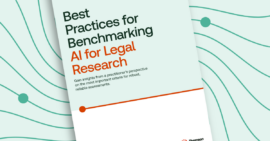Earlier this year, the Federal Parliament passed the Treasury Laws Amendment (Enhancing Whistleblower Protections) Act 2019, which significantly strengthened and broadened the existing whistleblower regime found in the Corporations Act. In addition, it introduced a new whistleblower regime into the Taxation Administration Act, which previously had no whistleblower protections. The new law came into force on 1 July 2019.
Whistleblowing systems form part of a company’s corporate governance and risk management profile, so compliance with the new laws is a top priority and an area of key concern for many boards and general counsel/in-house legal teams.
What are the key features of the new whistleblower regimes?
Broadly, the whistleblower regimes under the Corporations Act and the Taxation Administration Act provide a range of statutory protections to whistleblowers (and others), where a disclosure of corporate wrongdoing or misconduct:
- has been made,
- could be made, or
- is suspected to have been made.
To be protected, the disclosure must:
- be made by an eligible whistleblower,
- be made to certain recipients prescribed by the legislation, and
- relate to certain matters prescribed by the legislation.
The type of protections available include:
- Strict obligations around the protection of a whistleblower’s identity.
- Protections for a whistleblower from detrimental conduct (often referred to as victimisation or retaliation) because a person believes that a qualifying disclosure has been made, may be made, or could be made.
- A number of legal immunities for a whistleblower.
New penalties
Contravening the whistleblower regimes can result in:
- Significant criminal penalties in criminal prosecutions commenced by the Australian Securities and Investment Commission (ASIC), or the Commonwealth Department of Public Prosecutions, including imprisonment.
- Significant civil penalties in civil prosecutions commenced by the ASIC (up to $1.05 million for an individual, and $10.5 million for a corporation).
- Exposure to un-capped compensation, and other remedial orders deemed appropriate, in civil liability proceedings commenced by a whistleblower, or another person who suffers detriment because a disclosure has been made.
Whistleblower policy deadline
The amendments to the Corporations Act include a mandatory requirement for:
- Public companies,
- Large proprietary companies, and
- Proprietary companies that are the trustee of a registerable superannuation entity,
to have a whistleblower policy that meets prescribed requirements set out in the Corporations Act, and to make that policy available to every officer and employee of the company.
To be compliant, a whistleblower policy will need to address the requirements of the new legislation, including:
- Protections available to whistleblowers.
- To whom, and how, a whistleblower can make a protected disclosure.
- How the company will support whistleblowers.
- How the company will investigate protected disclosures.
- How the company will ensure fair treatment of employees mentioned in protected disclosures.
- How the policy will be made available to officers and employees.
The deadline to have a compliant policy in place – which is fast approaching – is 1 January 2020. Failure to adopt a compliant policy is a strict liability offence under section 1317AI of the Corporations Act.
For guidance on the new requirements of a whistleblower policy, simply fill in the form on this page to download Practical Law’s “Quick guide to whistleblower polices”, part of a comprehensive suite of materials created by Practical Law Employment and Practical Law Corporate to help companies and their advisers to navigate the new whistleblower regimes.


